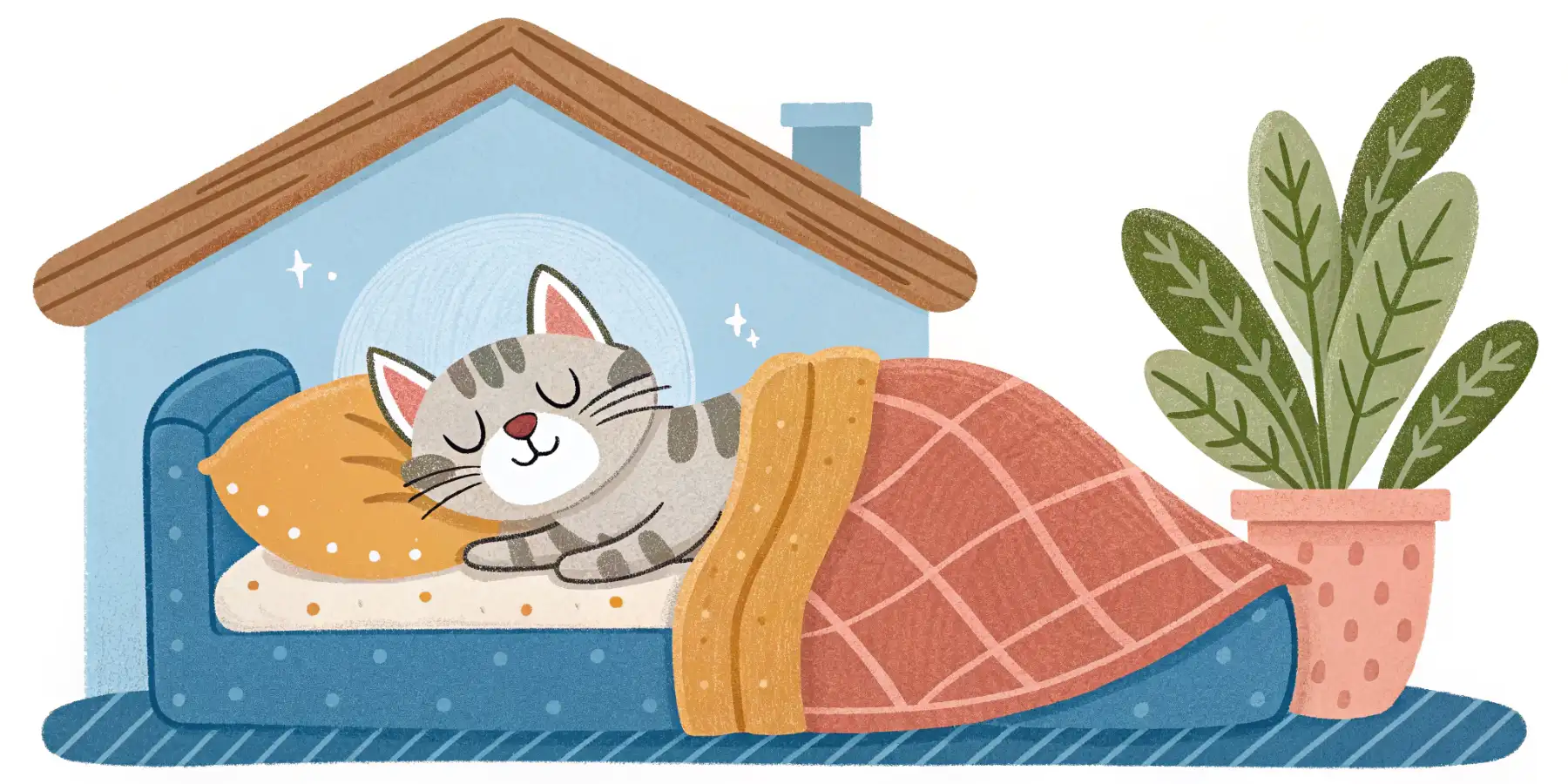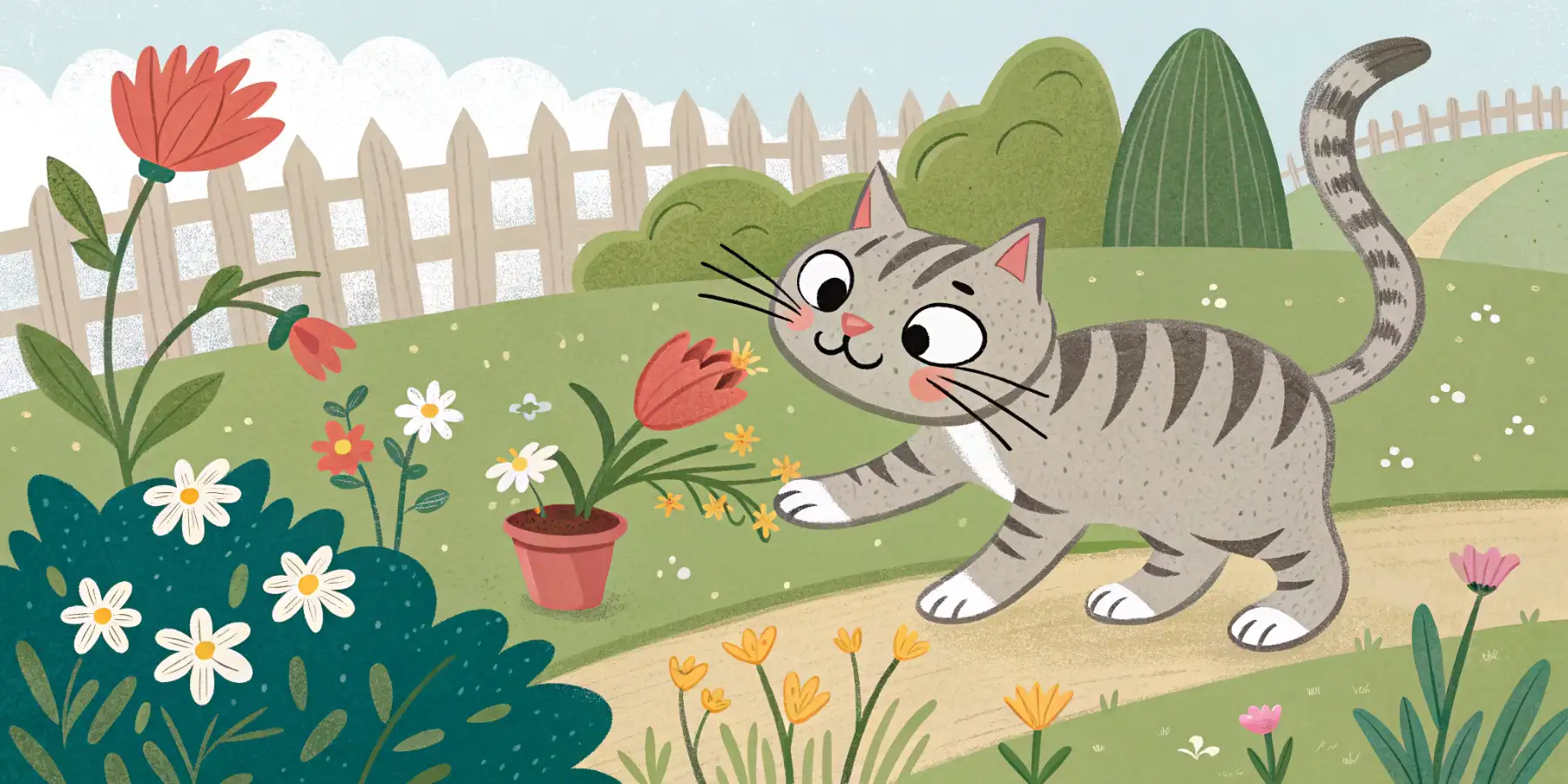
Playful Cat, Happy Cat: Why Play Matters!
Think your cat just wants to nap? Think again! Unlock a happier, healthier kitty with the power of *play*! Learn why *cat enrichment* matters.
The Importance of Play for Adult Cats: Keeping Them Active and Engaged
We often think of kittens as the bundles of energy that need constant play, but what about our adult cats? It’s easy to fall into the trap of believing they’re content napping the day away, but that couldn’t be further from the truth. Play is absolutely crucial for the well-being of adult cats, both physically and mentally. As a vet tech for over a decade, I’ve seen firsthand the difference a good play routine makes in a cat’s overall health and happiness.
Why Play is Essential for Adult Cats
Think of your cat’s ancestors – wild predators who spent a significant portion of their day hunting. While our domesticated feline friends don’t need to stalk mice for their survival, that instinct is still deeply ingrained in their DNA. Play allows them to express these natural behaviors in a safe and controlled environment.
Here’s a breakdown of the benefits:
- Physical Exercise: Prevents obesity, maintains muscle mass, and improves cardiovascular health. Regular playtime helps prevent cats from becoming overweight, a serious health concern that can lead to diabetes and joint problems. Actively engaging in play keeps your cat in shape and reduces the risk of weight-related ailments.
- Mental Stimulation: Reduces boredom, anxiety, and destructive behaviors. An understimulated cat is a recipe for disaster. They might start scratching furniture, overgrooming, or even exhibiting aggressive behaviors. Play provides mental enrichment, keeping their minds sharp and engaged.
- Bonding: Strengthens the relationship between you and your cat. Interactive play is a fantastic way to build a stronger bond with your furry friend. It’s a shared activity that fosters trust and affection.
- Prevents Behavioral Issues: Helps redirect hunting instincts and reduces the likelihood of inappropriate scratching or biting. Play effectively acts as a healthy outlet for your cat’s hunting drives. It’s a much better alternative than them pouncing on your ankles!
- Improves Sleep Quality: A tired cat is a happy cat! Just like humans, physical activity helps improve sleep quality in cats.
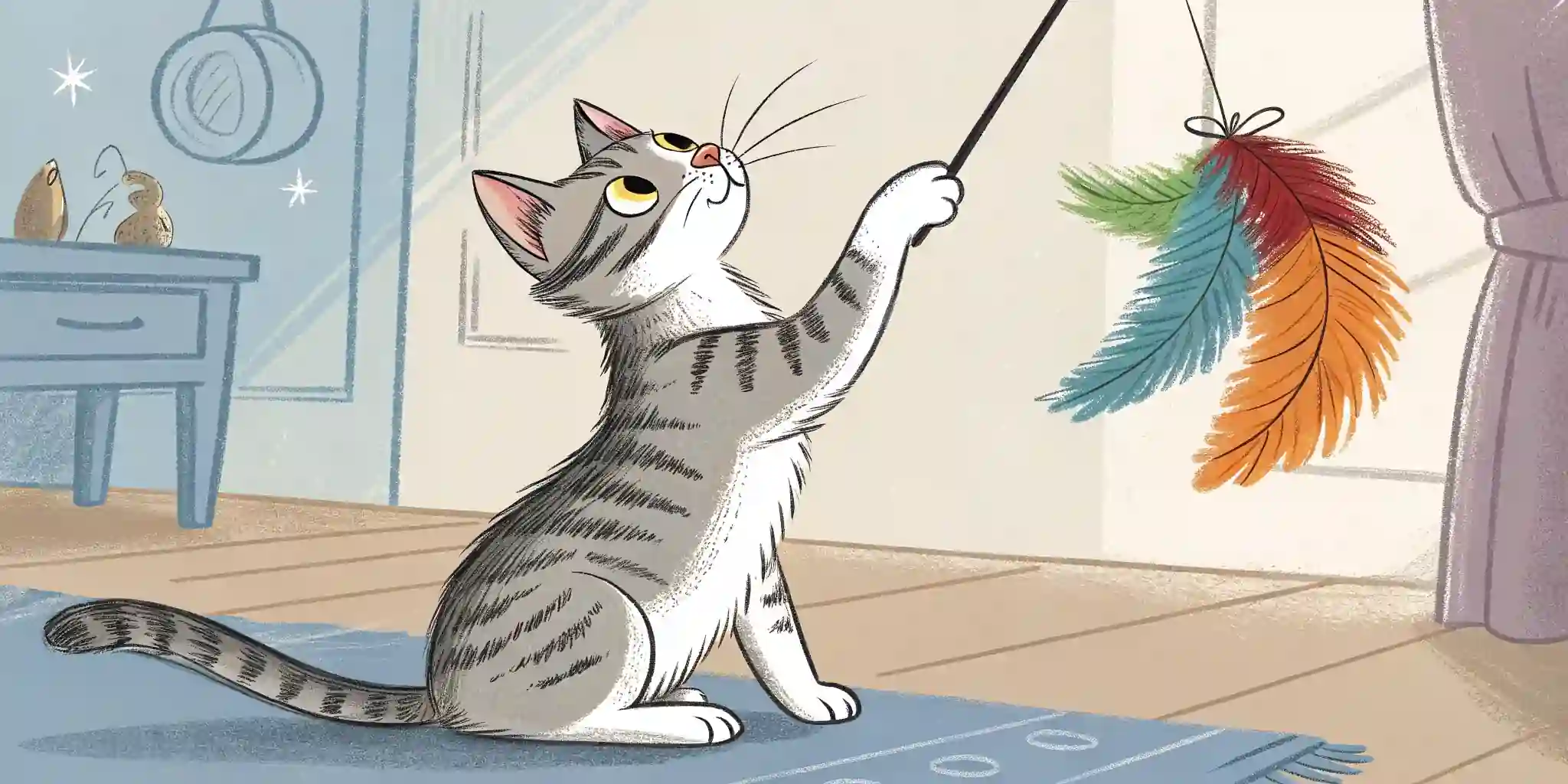
A playful cat happily engages with a feather wand, showcasing the joy of interactive playtime.
Understanding Your Cat’s Play Style
Not all cats are created equal. Some are fervent hunters, while others are more laid-back. Pay attention to your cat’s preferences. Do they prefer toys that mimic prey, like feather wands or toy mice? Or do they enjoy puzzle toys that challenge their problem-solving skills?
Here are a few things to consider:
- Hunting Sequence: Most cats follow a predictable hunting sequence: stalk, chase, pounce, kill, eat. Toys that allow them to complete this sequence will be the most satisfying.
- Variety is Key: Just like us, cats can get bored with the same old routine. Rotate their toys regularly to keep things interesting.
- Observe their Reactions: Pay attention to what gets them excited and what doesn’t. Tail flicks, ear positions, and vocalizations can all give you clues about their preferences.
Practical Tips for Engaging Play Sessions
- Schedule Regular Playtime: Aim for at least 15-20 minutes of interactive play per day. I believe that two shorter sessions are often better than one long one. Think about early morning and evening, when cats are naturally more active.
- Use Interactive Toys: Feather wands, laser pointers (use with caution and never shine directly into their eyes), and toy mice are all excellent choices.
- Create a Hunting Environment: Encourage your cat to stalk and chase their toys. Hide them behind furniture, under blankets, and around corners.
- End on a “High Note”: Let your cat “catch” their prey at the end of the session. This will help them feel successful and satisfied. You can also give them a small treat to simulate the “eating” part of the hunting sequence.
- Consider Environmental Enrichment: Cat trees, scratching posts, and window perches all provide opportunities for play and exploration. Ensure your cat has access to these even when you’re not actively playing with them.
Dealing with the “Lazy” Cat: How to Encourage Play
Sometimes, even with the best intentions, our cats just don’t seem interested in playing. Don’t despair! Here are a few strategies to try:
- Rule Out Medical Issues: If your cat has suddenly become less active, it’s essential to rule out any underlying medical conditions. A vet visit is always a good idea.
- Try Different Toys: Experiment with different textures, sizes, and sounds to see what sparks their interest. Catnip toys are often a good starting point.
- Make it a Game: Incorporate playtime into your daily routine. For example, you could hide treats around the house and let your cat “hunt” for them.
- Patience is Key: It may take some time to find the right approach. Don’t give up! Keep trying different things until you find something that works.
- Consider Puzzle Feeders: If your cat isn’t interested in chasing toys, puzzle feeders can be a great way to provide mental stimulation and encourage activity. They have to work for their food, mimicking natural foraging behaviors.
- Introduce a New Cat Friend: If you have the space and resources, adopting another cat can provide your existing cat with a playmate. However, be sure to introduce them gradually and ensure they have compatible personalities.
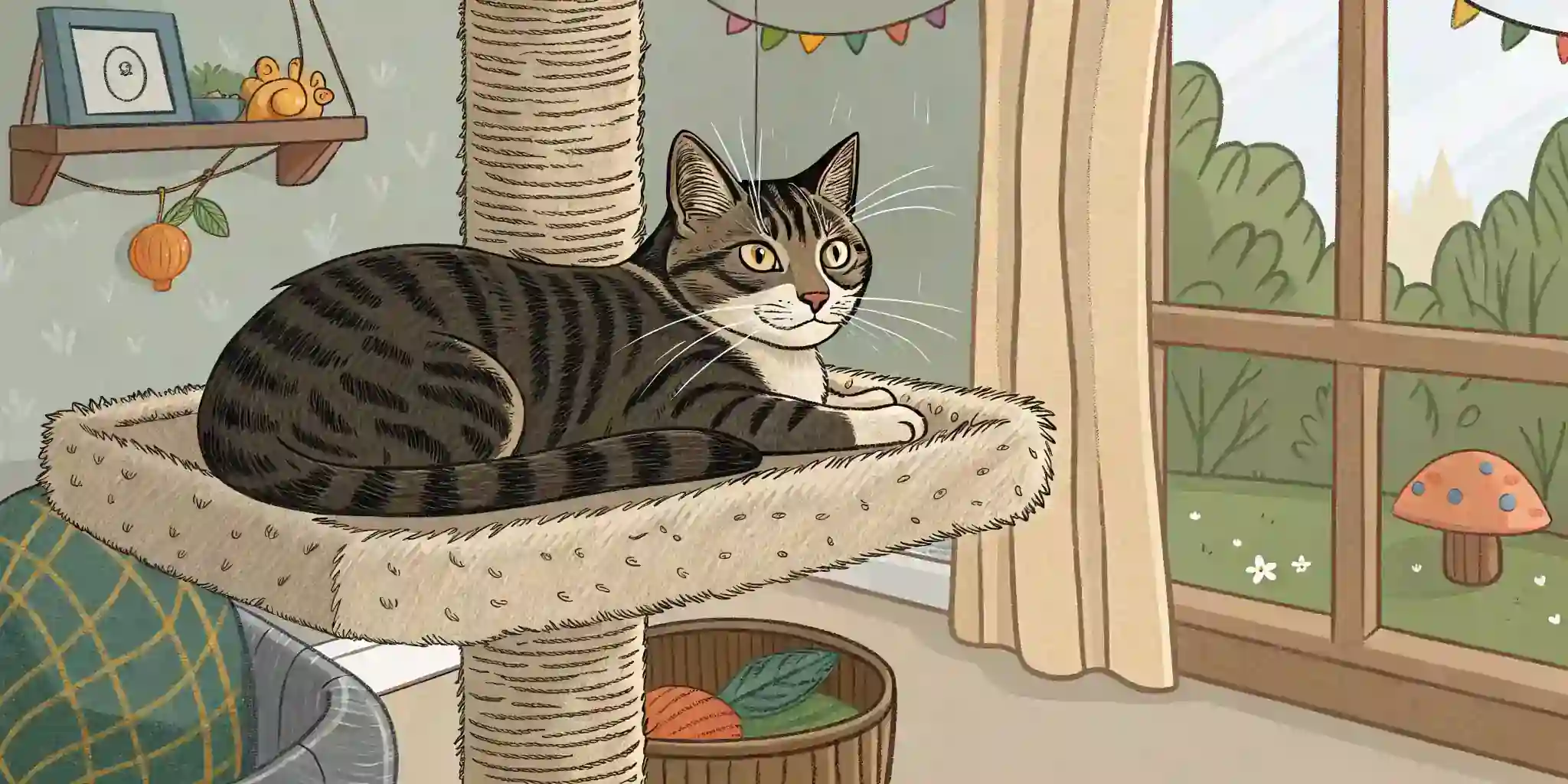
A relaxed adult cat enjoys the view from their cat tree, highlighting the importance of vertical space and environmental enrichment for indoor cats.
The Bottom Line: Prioritize Play!
In conclusion, don’t underestimate the importance of play for your adult cat. It’s not just about entertainment; it’s about their overall health and well-being. By providing regular opportunities for play, you can help your cat live a happier, healthier, and more fulfilling life.
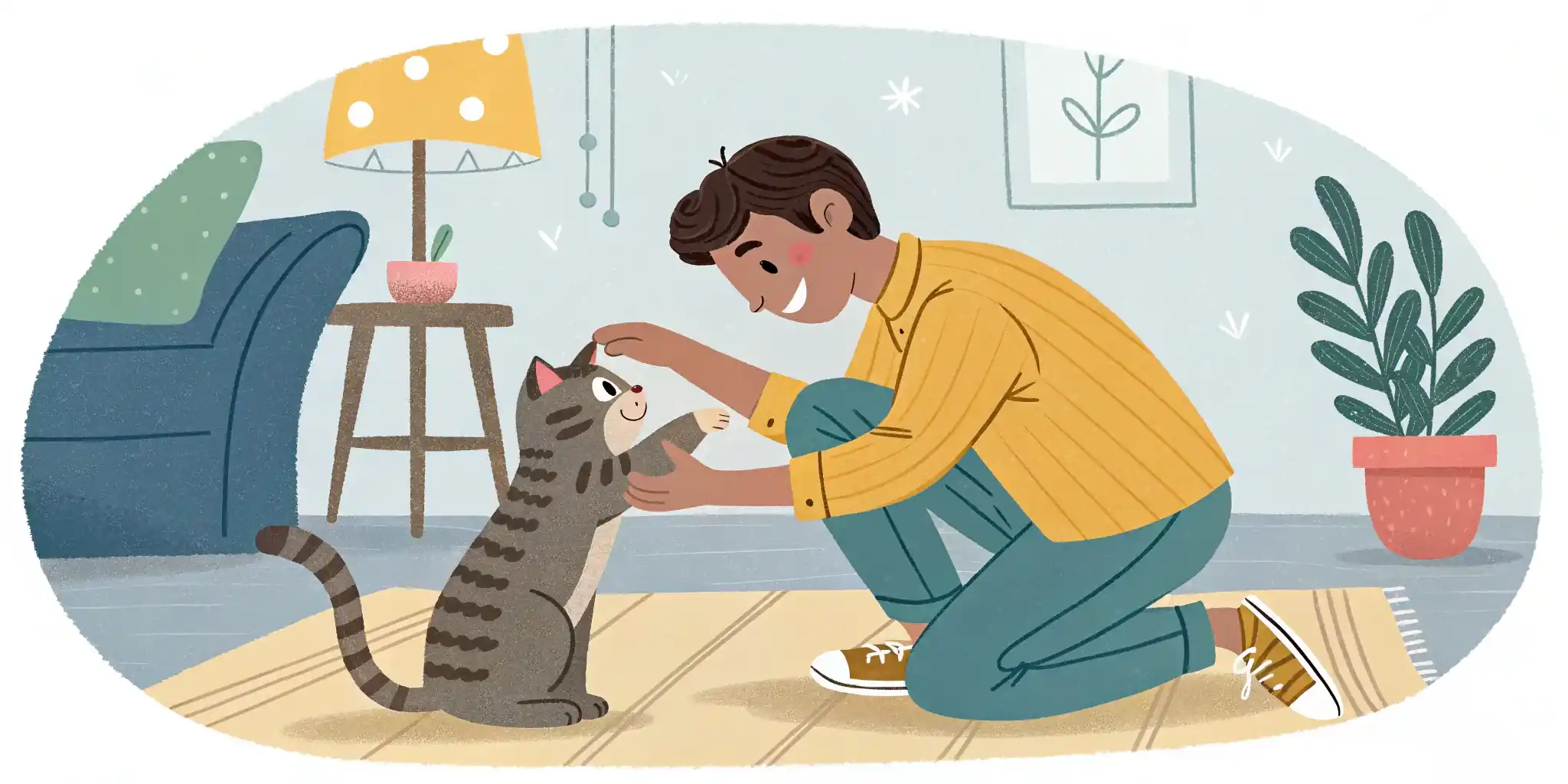
A cat owner joyfully interacts with their cat, emphasizing the bonding and enjoyment that comes with regular playtime.
So, grab a toy, get down on the floor, and start playing! Your cat will thank you for it. And who knows, you might even have some fun yourself!
